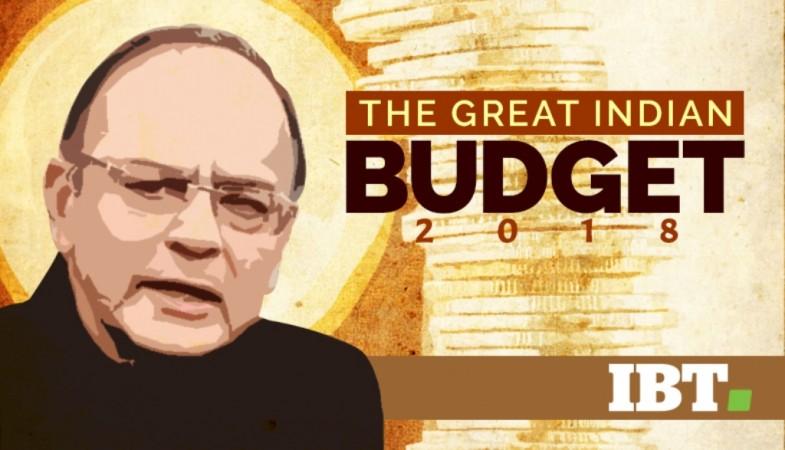
The Narendra Modi-led NDA government reiterated its stand on cryptocurrencies as finance minister Arun Jaitley said in his Budget speech on Thursday that digital currencies are illegal in India, and that the government was not going to recognise them.
The move is seen as an effort to control the proliferation of cryptocurrencies by the government, which has repeatedly warned investors in the country against the dangers of investing in digital currencies like Bitcoin. Jaitley's comments, however, didn't come as a surprise since the government was expected to announce measures to regulate cryptocurrency in India.
"Cryptocurrencies are not legal tender and the government discourages its use. However, the government will look at the utilisation of blockchain," Jaitley said in his Budget speech in Parliament, adding that the technology can help further boost the Digital India campaign.

Although the finance minister didn't provide any details about how the government is planning to utilise the blockchain technology, industry experts believe that its adoption can be encouraging for the micro, small and medium enterprise (MSME) sector.
"The government's decision to explore the usage of blockchain technology, a shared digital ledger which has been fast finding favour with financial intermediaries, will help ease credit flows to MSMEs since it can track and record each and every transaction of individuals and enterprises on a shared network," Vinay Kalantri, founder and managing director of The Mobile Wallet, told International Business Times, India in an email statement.
The government's decision to adopt the blockchain technology has also sparked fresh speculation that the Reserve Bank of India (RBI) could eventually consider having its own cryptocurrency.
The central bank, which is apparently uncomfortable with the non-fiat nature of the conventional virtual currencies, is already said to be looking at the possibility of a fiat cryptocurrency that can become the digital counterpart of the Indian rupee. Some experts also believe that the government is not entirely averse to cryptocurrencies.
"The announcement on the cryptocurrency by the FM should not be misinterpreted to mean the cryptocurrency is going to be discouraged by the Government. The intention is more likely to regulate the circulation to avoid its use for illegal transactions," Rashmi Deshpande, associate partner, Khaitan & Co, told IBTimes India, in an email statement.

However, the future of cryptocurrency exchanges remains uncertain in India. Some recent reports have revealed that several banks had frozen accounts of such exchanges in the country while the Registrar of Companies (ROC) had stopped registering companies that intended to act like cryptocurrency exchanges.
"Businesses engaged in this will have to evaluate future prospects, but it has always been uncertain how Indian conservative monetary and fiscal policies will view this alternate form of currency," said Sameer Sah, associate partner, Khaitan & Co.
Thanks to the rise and rise of Bitcoin in 2017, cryptocurrencies have gained immense popularity globally over the past few months. However, the so-called Bitcoin craze has also come under government's scrutiny as it can be used to evade tax or lure unwary investors to put money into Ponzi schemes.
There have also been several instances when cyber attackers have hacked into investors' accounts to steal a huge amount of money. A successful implementation of blockchain or paving way for RBI's own cryptocurrency, therefore, require more clarification on several factors ranging from the KYC and transferability to ownership and security.
"It will be important to understand the investment and longer-term strategic thinking that this new technology will demand from the Central Government," J A Chowdary, special chief secretary and IT advisor to the chief minister of Andhra Pradesh, told IBTimes India.
"The government must deliberate the use of blockchain for smart contracts and blockchain-based KYC which will bring security, efficiency, and speed to a wide range of services and processes," Chowdary, who is also the chairman and group CEO of Andhra Pradesh Electronics and IT Agency, added.














